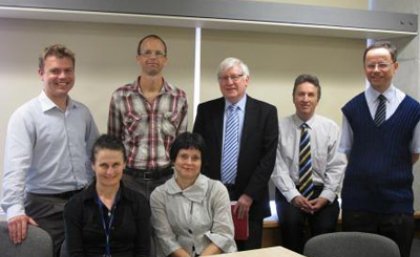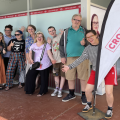
Former senior public servant and University of Queensland researcher Professor Brian Head is setting out to change a widely held perception that while evidence-based research is necessary in medicine and science, the leap to making social policy decisions based on social research has a long way to go in Australia.
Professor Head, leader of the Policy Analysis program at the Institute for Social Science Research (ISSR), is one of the chief investigators on a landmark Australian Research Council Linkage grant project entitled "The Utilisation of Social Science Research in Policy Development and Program Review".
Last week, at the first major project symposium, Professor Head and his team presented preliminary findings from two surveys and a series of in-depth interviews undertaken for the project.
Phase One of the project surveyed almost 700 Australian academic social science researchers about their experiences and perceptions of a number of issues surrounding the utilisation of research in their field in policy and program design and review.
Professor Head says one of the main problems, highlighted by responses to the academic survey, “is the institutional emphasis on academic papers to the detriment of other forms of communication such as the media, blogs and other forms of social media and a reward system that does not recognise dissemination barriers”.
An overwhelming number of the respondents said they believed that academic reward systems (84 percent) and the demand to publish in peer-reviewed journals (74 percent) were barriers to knowledge translation and uptake.
Likewise, academics considered that there were costs in translating research for non-academic end-users.
More than 55 percent of respondents agreed there were insufficient networks to promote collaboration and less than half saw it as a way to advance their careers.
The project is examining research utilisation within public sector agencies in Australia at both state and national levels focusing on agencies whose responsibilities include human service policies and programs.
"The project involves agencies from four governments (Qld, NSW, Victoria and Federal) in a million-dollar Australian Research Council (ARC) Linkage grant project. We're looking at the key human services and currently have nine funding partners with this expected to increase to 15," Professor Head said.
The survey showed the time it took to coordinate the work between different partners (81 percent), different research orientations (79 percent), the complexity of contractual arrangements (63 percent) and the ethics process (63 percent) were some of the problems they faced when working in collaboration with non-academic partners from the government, industry or community sectors.
"We need to ask public servants what knowledge and research they use and how they access it when they feel it is relevant for their work," he said.
When asked what characteristics of research they thought policy-makers prioritised, responses indicated recognition that research must be tailored to end-user needs in the context of its delivery (94 percent), practicality, i.e, implications for policy and practice (91 percent) and availability (90 percent).
And more than 80 percent of the sample said they believed the reputation of the researcher was a priority for end-users, and an advantage in the likelihood of their research being utilised by policy-makers.
Professor Paul Boreham, ISSR Deputy Director and a Chief Investigator on the project said: "There is a lot of blue sky research that does not have that need for engagement and translation but the results (so far) suggest there is a wider, structural problem with the uptake of research for policy – few bridges are been built to utilise academic social science research."
Media: Honor Morton on 3346 7806.
.jpg)









